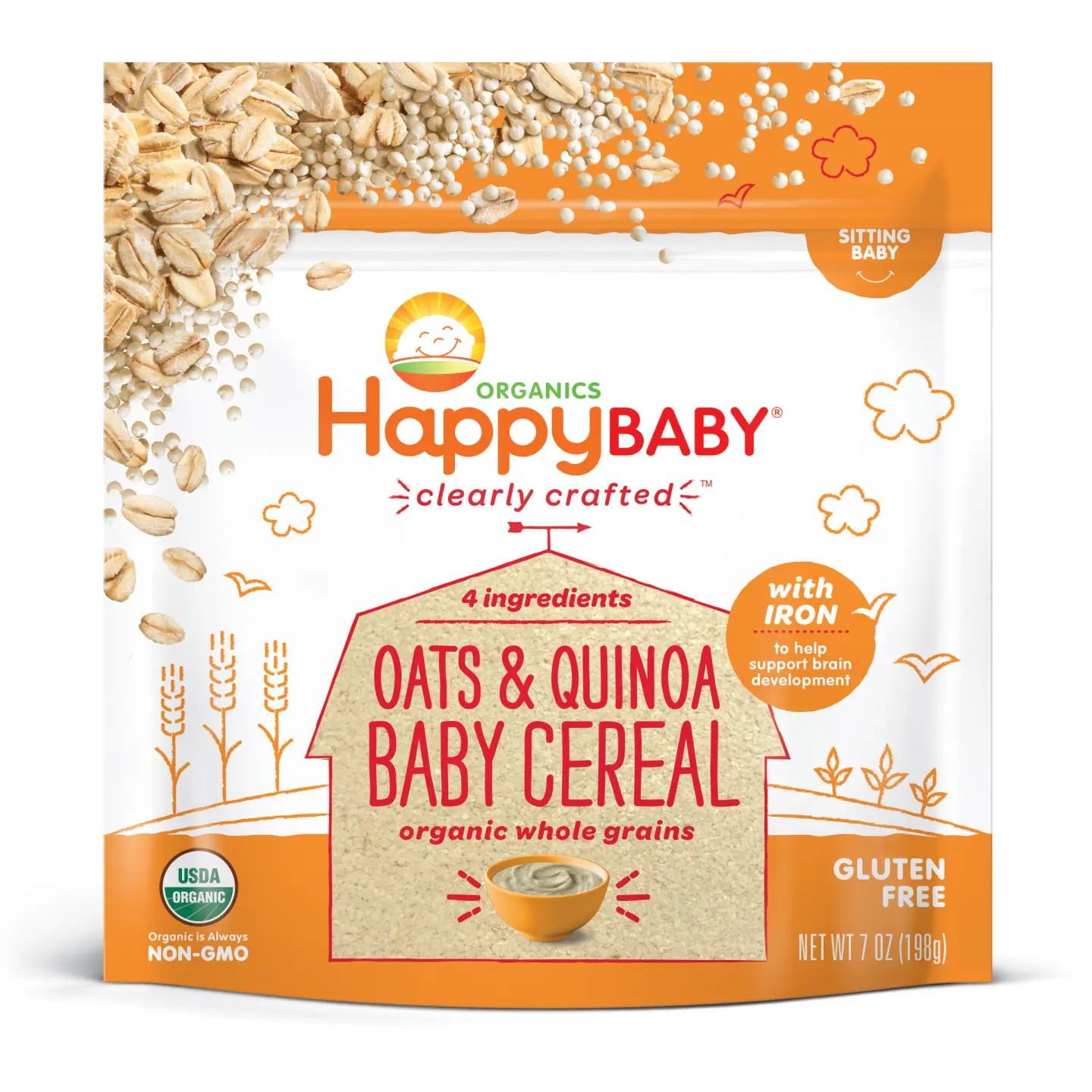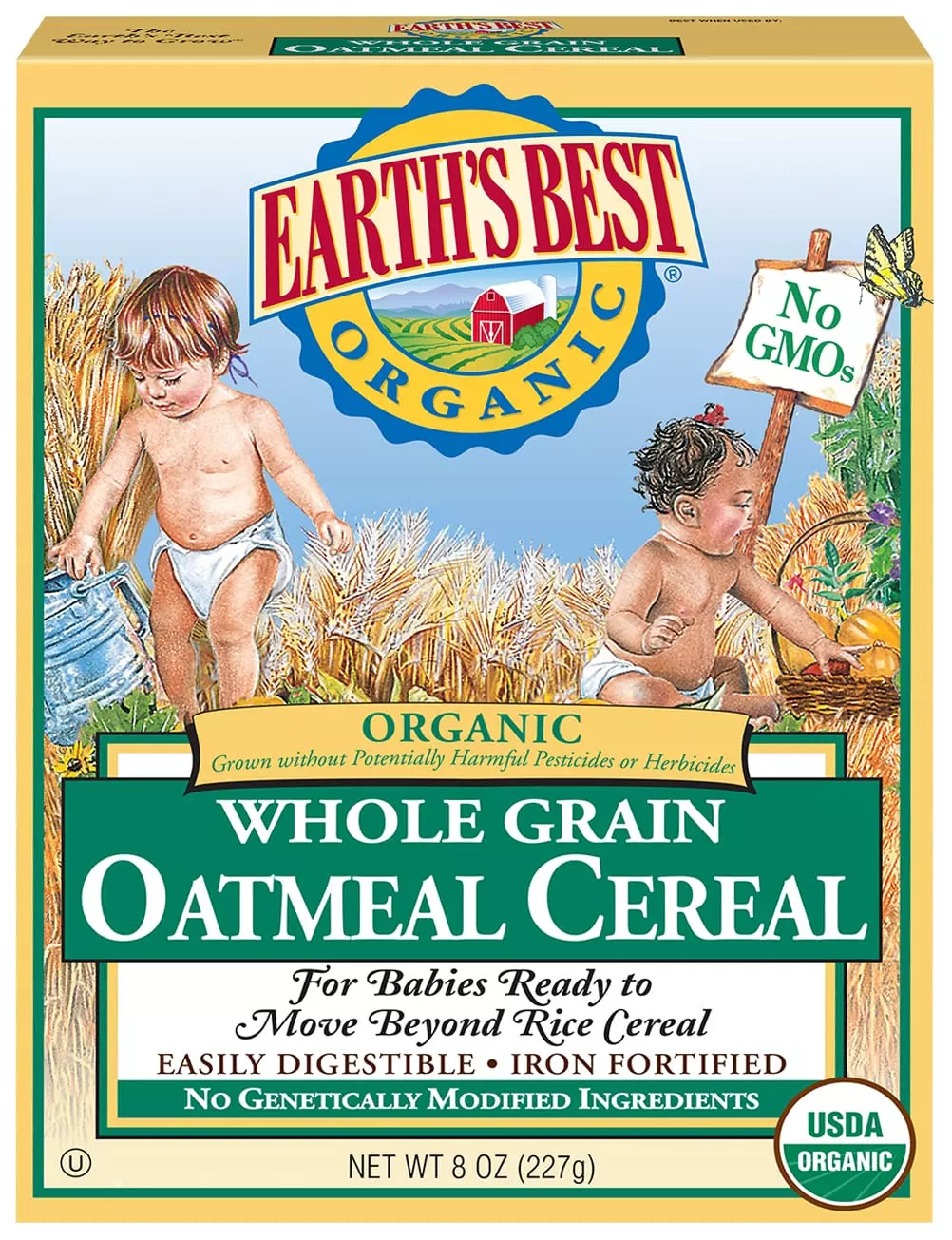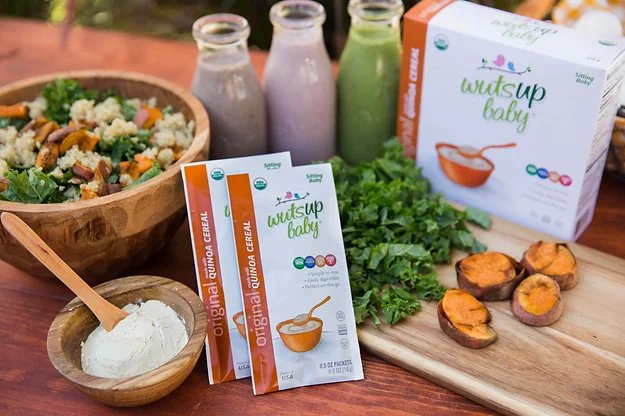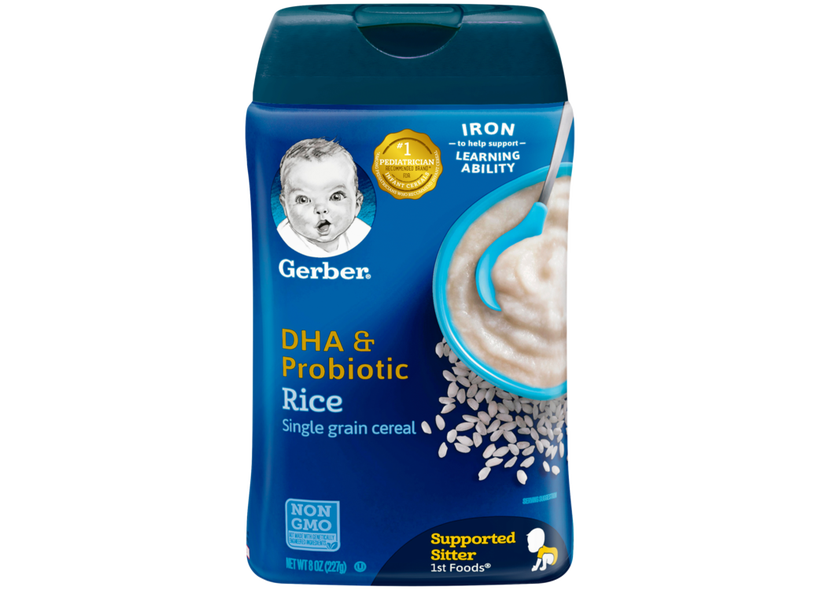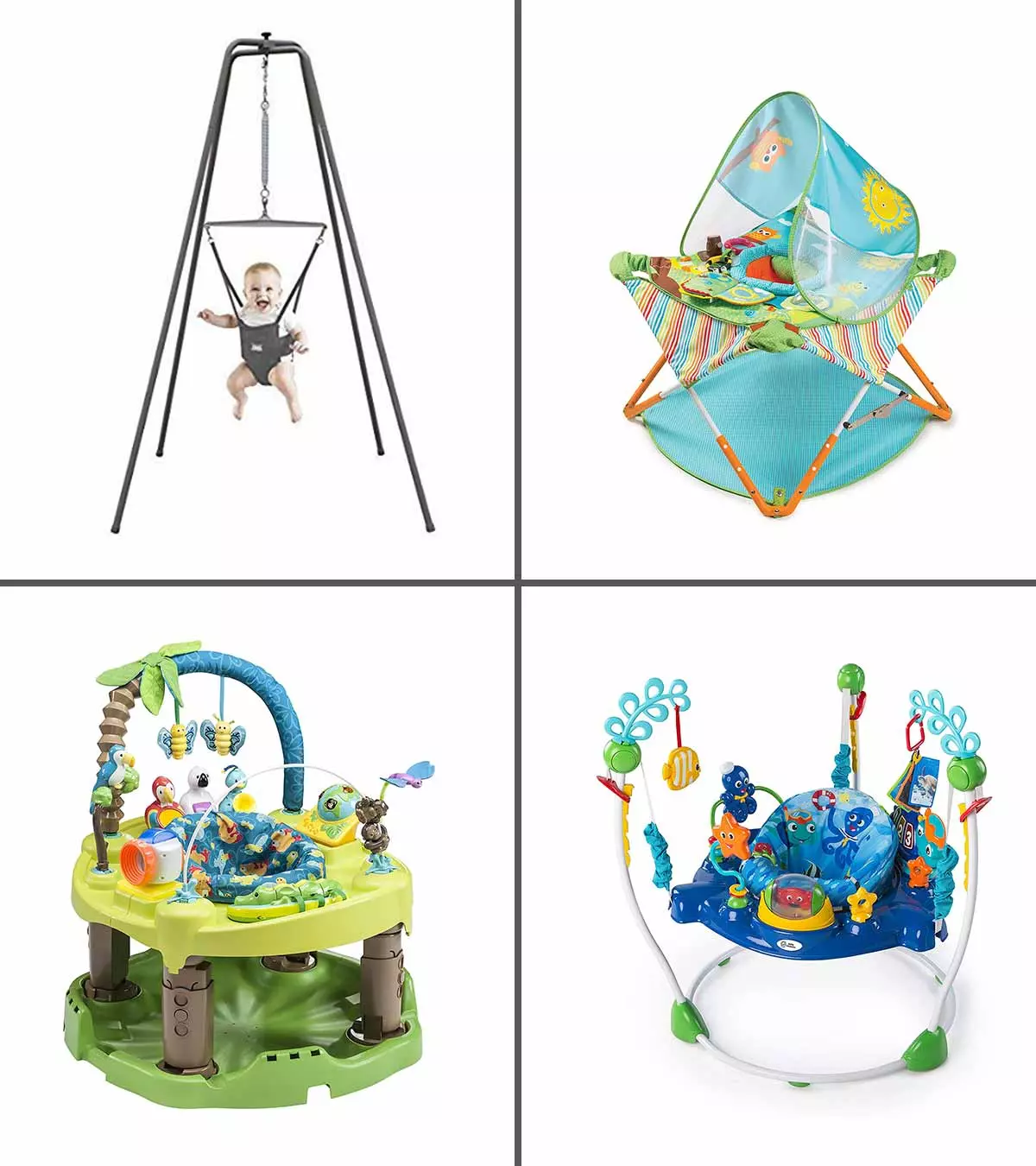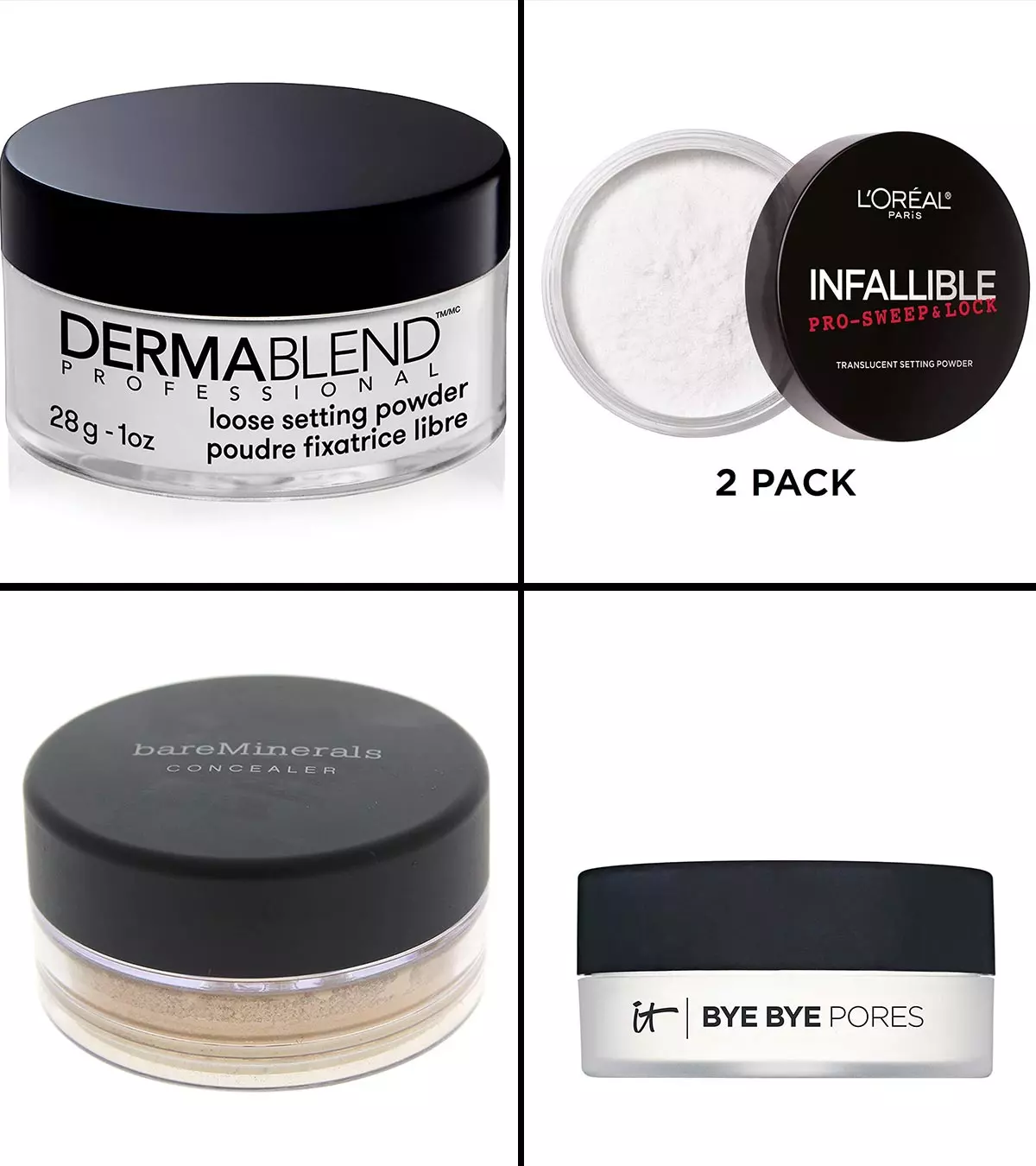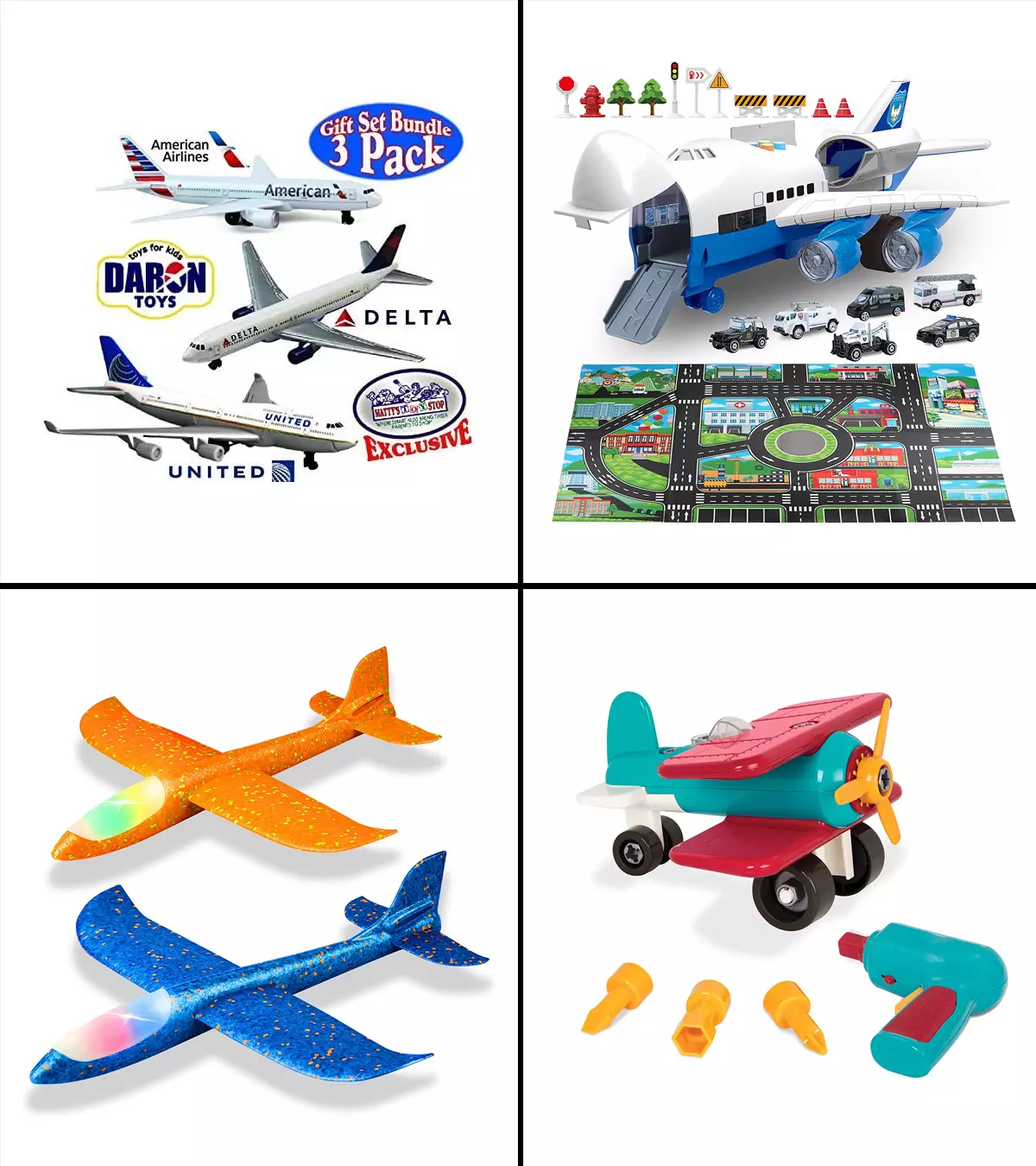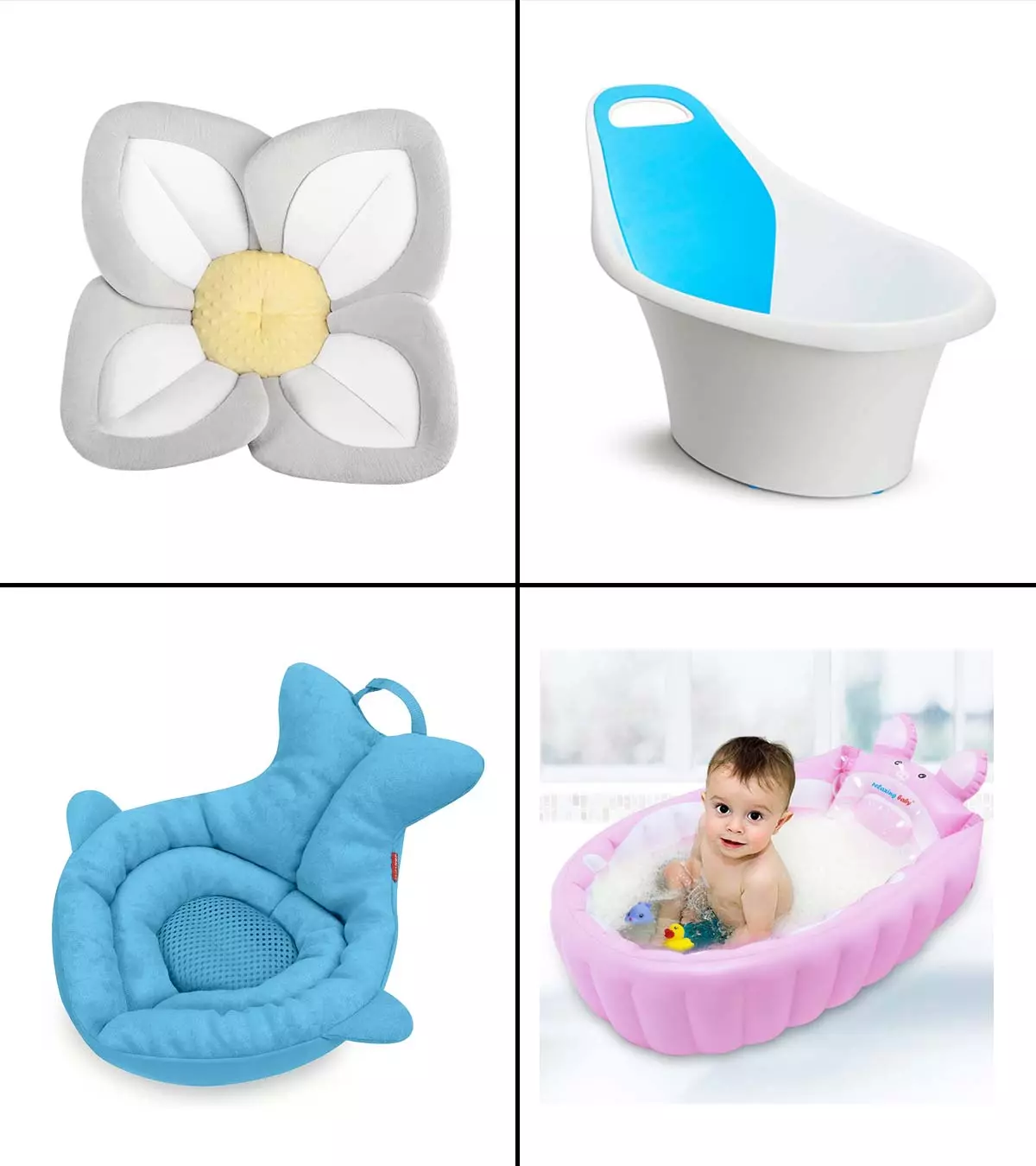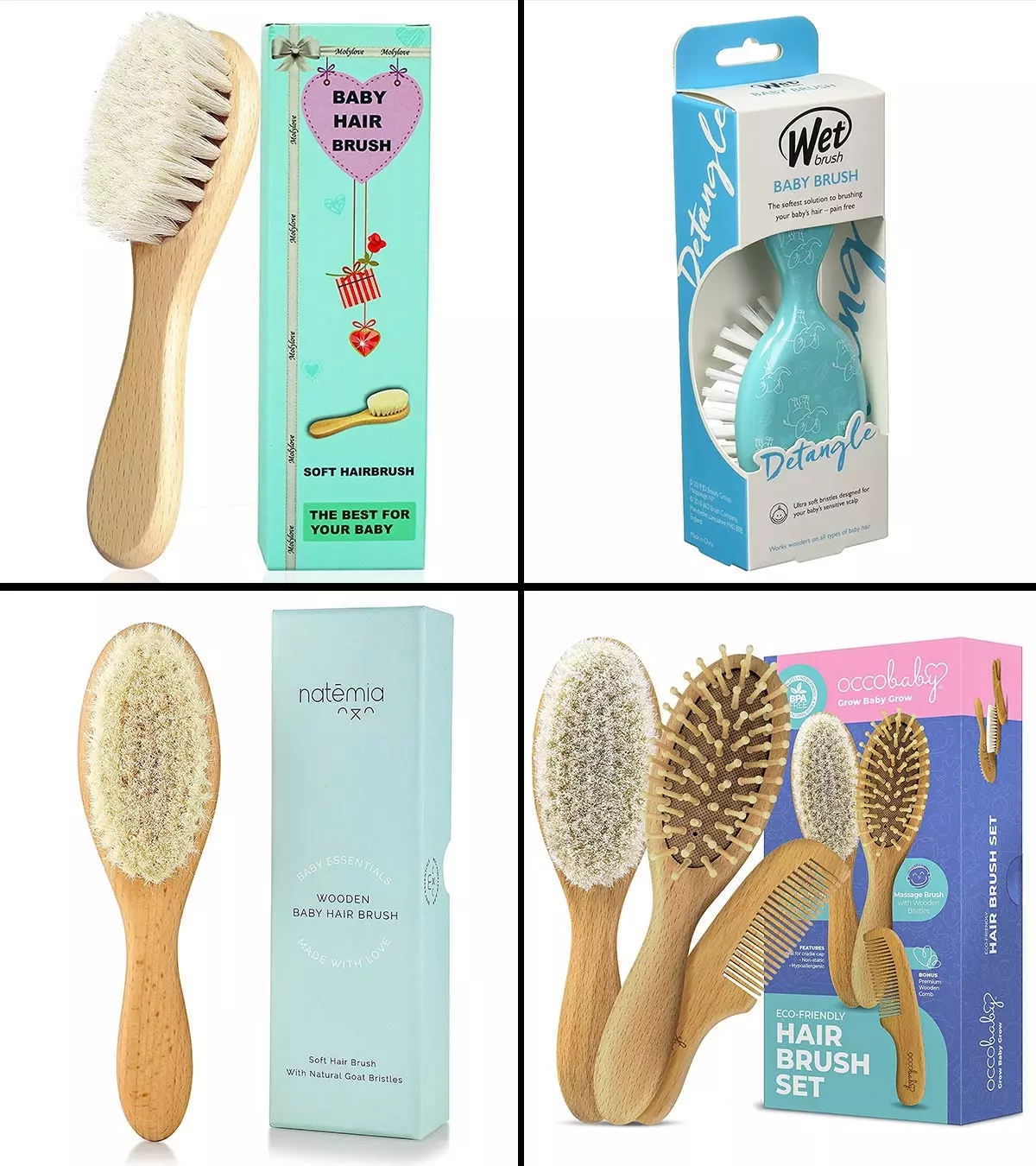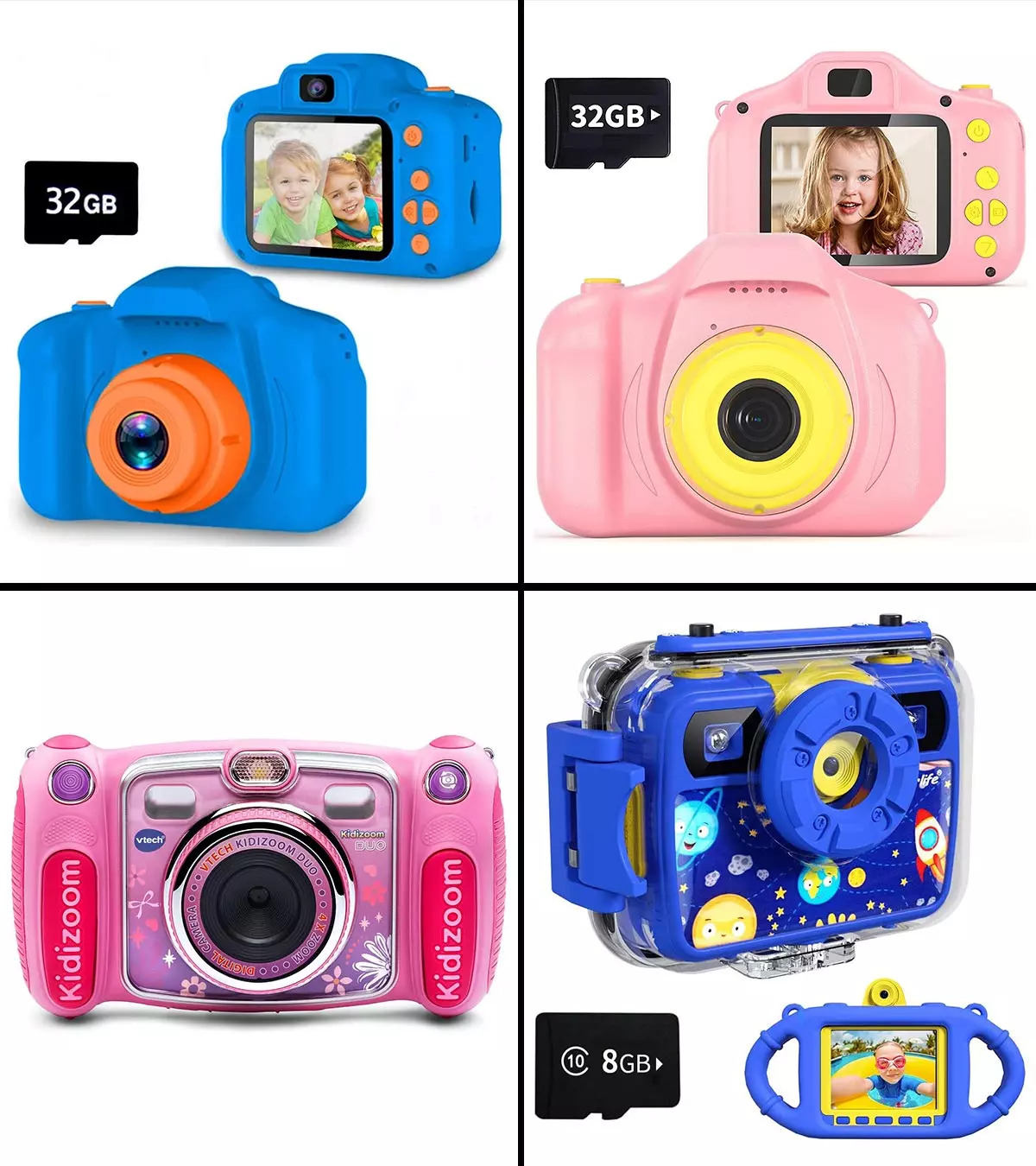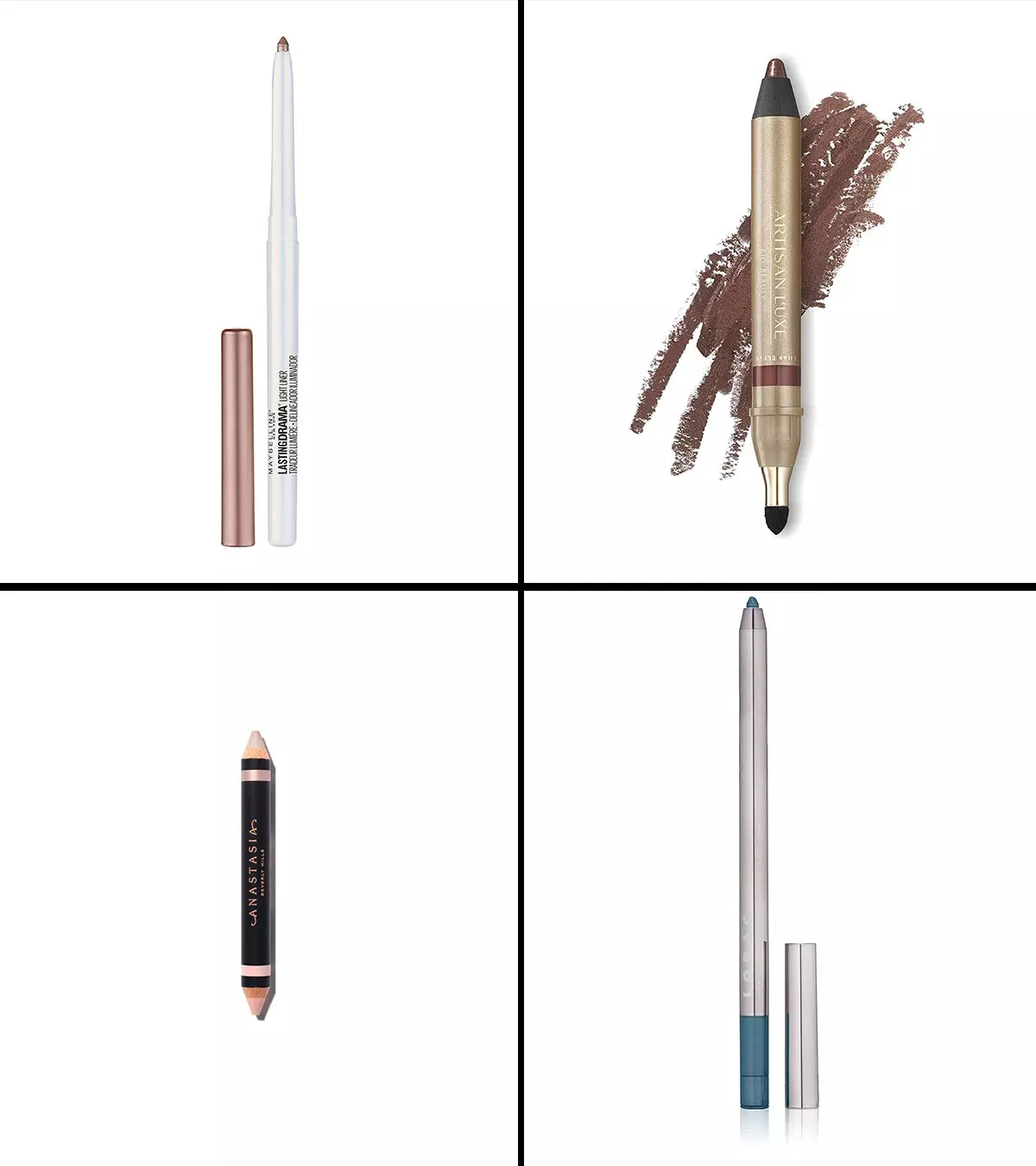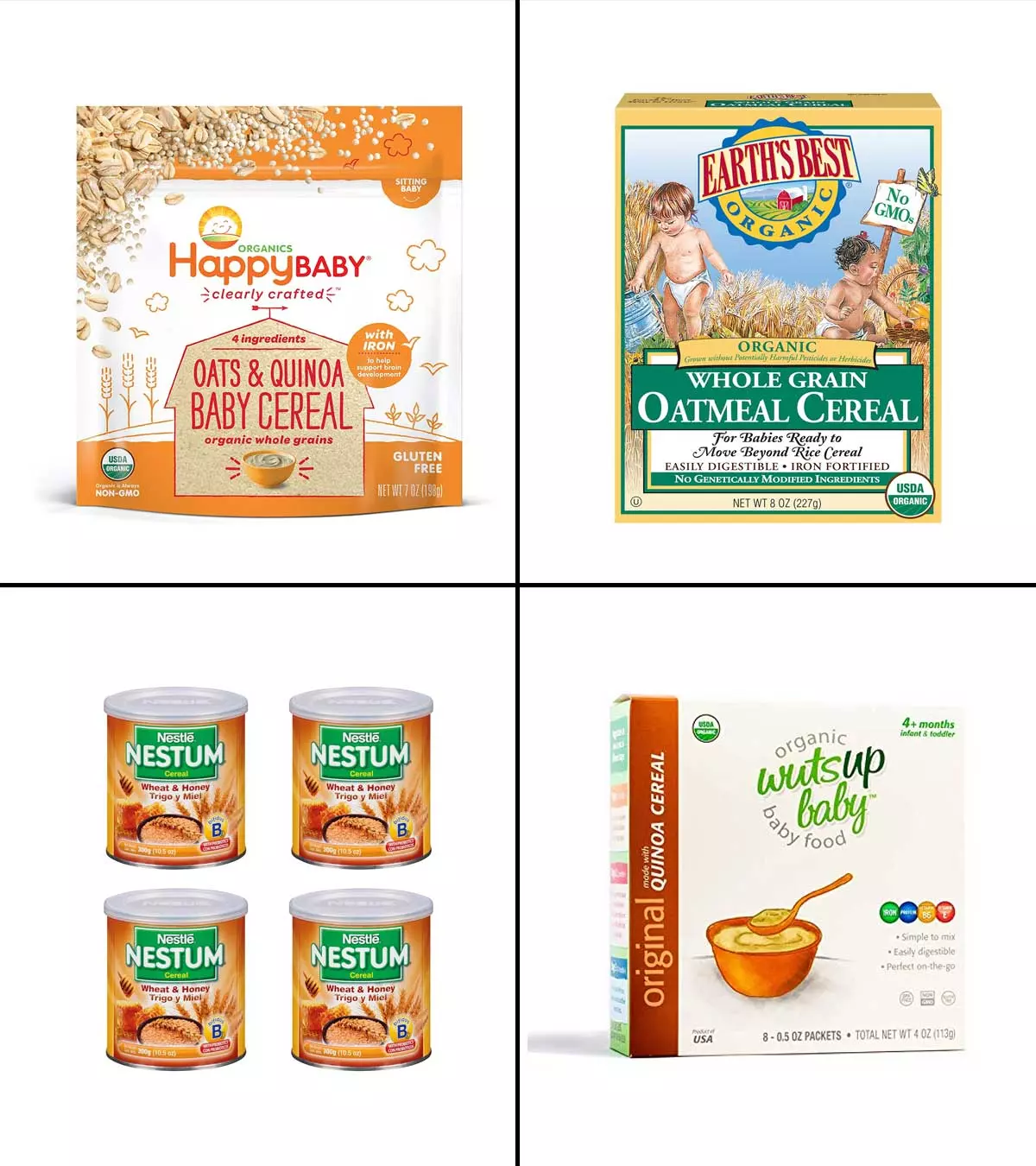
Image: MomJunction Design Team
Baby cereals are specially formulated for easy digestion and help you easily transition from breast milk or formula to more solid food. So, check out our list of the best baby cereals to ensure your baby gets optimum nutrition. This fiber-filled food contains essential minerals, vitamins, proteins, and iron that support brain development, form a robust immune system, bones, and teeth, and maintain good metabolism. They are also hypoallergenic and free of gluten and preservatives.
With several baby cereal options available like single or multi-grain, organic, and iron-fortified, choosing the right one can be a struggle. So, take a look at our list to make an informed decision.
Top Picks
Benefits Of Baby Cereal
The following are some benefits of baby cereal (1).
- Nutrients: Cereal is rich in nutrients such as magnesium, iron, zinc, and vitamin E that help meet the growing requirements of your little one.
- Digestion: It is crucial to choose a diet plan for the baby that is safe for their digestive system. Baby cereal is soft and gentle on the stomach, promoting easy digestion and helping satisfy their appetite.
- Blends well: Baby cereal is versatile and blends well with other food items such as mashed fruits. If you plan to introduce solid foods to your child, then choosing baby cereal can be a good choice.
5 Best Baby Cereals
1. Best Nutrient-Rich: Happy Baby Oats And Quinoa Baby Cereal
Let’s try this Happy Baby oats and quinoa baby cereal that is fortified with the goodness of oats, quinoa, vitamin C, and iron to support the brain and proper neurological development in your baby. The nutrient-rich quinoa is easy on the baby’s digestive system and vitamin C strengthens immunity. Simply stir the desired amount of baby cereal with mother’s milk, formula, or water, and keep your baby’s tummy full for hours.
The mommy-approved multi-grain cereal contains 17% DV iron and 45% DV protein and is allergen-free. The non-GMO organic iron-rich food supplement has no pesticides, is gluten-free, and is a safe and effective option for your baby’s health. The USDA organic baby cereal comes in a resealable and mess-free packaging devoid of BPA.
Pros
- Premium ingredients
- Easy to prepare and dissolve
- Safe for children
- Free of nuts, dairy, and soya
Cons
- May have a strong smell of the ingredient
- May contain one gram of added sugar
"This product stood out to me for its nutritious blend of oats and quinoa. It's slightly bland, but when I pair it with various fruits, it becomes a wholesome breakfast for my children. Plus, it's gentle on delicate tummies, so it has become a reliable breakfast option."
2. Best Iron-Fortified: Gerber Rice Baby Cereal
This nutrient-dense infant rice cereal is brought to you by Gerber, a trusted brand. This single-grain baby rice cereal is enriched with iron to help support learning ability and vitamin C and 6 B vitamins for promoting healthy bones and teeth. Just two servings of this iron-fortified cereal will help meet the baby’s daily iron supplement that aids in brain development. This single-grain baby-friendly cereal is an ideal first solid food to check for food sensitivities and help develop the baby’s eating skills. This iron-rich food is ideal for babies that sit with support and is an ideal choice for parents to promote the baby’s development. Watch this YouTuber’s honest review to get a better idea about this single-grain cereal from a tester’s experience.
Pros
- Has no artificial flavors or colors
- Non-GMO-certified
- Gluten-free
- DHA supports eye development
- BPA-free packaging
Cons
- Shelf life may be shorter than expected after opening
- Some children may not like the taste
"After using this product for a while, I've found it effective for my little one's digestive woes. It's easy on the stomach and also satisfies his taste buds. I also like how I can customize the consistency. I'm happy with this one!"
 Quick tip
Quick tip3. Best Organic: Earth’s Best Organic Whole Grain Oatmeal Cereal
Crafted with wholesome ingredients and essential nutrients like organic whole grain oat flour, vitamins, folic acid, and minerals to support healthy development, the Earth’s Best Organic Whole Grain Oatmeal Cereal provides healthy organic nutrition for the all-round development of your baby. Made with non-genetically modified ingredients, this organic single-grain cereal is loaded with 6 B-complex vitamins to support a healthy nervous system. The cereal can be mixed with breast milk, formula, or water and dissolves easily. It helps provide adequate iron supply for both breast-fed and formula-fed infants. It is one of the best baby cereals to start with solid food for your baby. This safe and effective baby cereal has no traces of any inorganic arsenic and has zero trans fat. This video by a reviewer will give you a better insight into this organic grain cereal.
Pros
- Smooth digestion
- Certified organic ingredients
- No artificial flavors or colors
- Unsalted and unsweetened
- USDA organic cereal
Cons
- Consistency may not be as expected
- Smell of the ingredient may be overpowering
"This multigrain cereal has been great for fulfilling my son's daily nutritional needs. I find it very easy to prepare, and its ingredients are safe for daily consumption. Overall, I'm satisfied with this product!"
 Quick fact
Quick factHappy Baby Oats And Quinoa Baby Cereal Best Nutrient-Rich | Gerber Rice Baby Cereal Best Iron-Fortified | Earth’s Best Organic Whole Grain Oatmeal Cereal Best Organic | |
|---|---|---|---|
| Dimensions | 7.01 x 6.57 x 2.76 inches | 7 x 4 x 2.8 inches | 17.1 x 8.4 x 8 inches |
| Weight | 7 Ounces | 8 Ounces | 0.01 Ounces |
| Rating | |||
| Reviews | 1,236 | 811 | 916 |
| Price | $3.89 | $9.89 | $35.52 |
4. Best Plant-Based:Else Nutrition Super Cereal
Feeding your baby becomes hassle-free with the nutrient-rich cereal by Else Nutrition. This plant-based cereal contains filling and nourishing ingredients such as buckwheat flour, rose seed oil, tapioca, and almond butter. The formula has high-quality protein, gluten-free carbohydrates, amino acids, healthy fats, and vitamins and minerals essential for a baby’s development. It can be trusted by moms and dads as it’s also rich in fibrous whole-food nutrients that promote digestion. Moreover, the powder just needs to be mixed with warm water or milk to turn it into a super meal, making it a travel-friendly solution for parents on the go.
Pros
- Offers balanced nutrition
- Has a fine texture
- Free of gums and fillers
- Organic and non-GMO ingredients
- Free of soy and dairy
Cons
- May have a thick consistency
- Some may not like its smell
"I've been feeding my baby this cereal since she was six months old, and its nutritional value is commendable. The additive-free composition is a major plus. Also, it's easy to prepare and offers a smooth consistency; I add different fruits to make it extra tasty."
5. Best Easily Digestible: WutsupBaby Original Quinoa Cereal
The WutsupBaby Original Quinoa Cereal is a natural baby food containing quinoa with the goodness of vitamins, iron, and protein. This easily digestible water-soluble powder mixes effortlessly with water, juice, milk, rice, and formula. It aids in physical growth and development, boosts the immune system, and supports the healthy growth of muscles and organ function. It is non-GMO and has no artificial colors or flavors, making it a trusted choice. This organic baby formula contains all essential and non-essential amino acids and provides complete and balanced protein to promote infant growth and development. Recommended for sitting babies, this mom-tested organic baby cereal has a smooth texture and is the perfect on-the-go food option.
Pros
- Has no added sugar
- Hypoallergenic
- Free of gluten, BPA, and preservatives
- Absorbs easily
Cons
- May have an overpowering quinoa taste
- Some may not like the granule-like texture
"I recently got this cereal for my kid, and she likes it! It suits my baby's digestive system, which is a relief. It's handy for on-the-go feeding as well."
 Do remember
Do rememberHow To Choose The Right Baby Cereal?
Keep the following factors in mind when choosing a cereal for your baby.
- Ingredients: Choose baby cereals made with organic ingredients and those that are free of preservatives and are gluten-free. They should also be free of heavy metals, such as cadmium, lead, mercury, and inorganic arsenic that can cause harm to the delicate organs of the baby and expose them to the potential risk of toxic heavy metal.
- Nutritional value: Another important point to consider is how much nutritional value the baby cereal will provide to your growing baby. Baby cereal should be fortified with iron, zinc, calcium, and vitamins B, C, and E. They help in brain development, build strong bones and teeth, build a strong immune system, and strengthen the child’s blood vessels.
- Recommended age: It is always important to buy baby cereal as per the age of the child. Every baby cereal is enriched with benefitting ingredients for different stages of the growing child. It is advised to check the recommended age on the cover of the product. If unsure, you should consult a pediatrician before picking a certain cereal for your child.
- Dietary requirements: Check if the cereal meets the dietary requirements. If you are unaware of how to create a diet plan for your child, you can take the help of a doctor or nutritionist.
- Organic: The key to a healthy diet is naturally resourced food items. Check the label and choose those with natural ingredients.
Frequently Asked Questions
1. Is rice cereal dangerous for babies?
Rice cereal is dangerous if given before the child is ready to eat solid food. The baby should have proper control over their neck and head, and the cranial nerves should be able to help the muscle movement. The oral skills should be developed so as to push solid from the front of the mouth to the back, and this generally develops after four months of age. Also, the baby should be able to sit upright on a high chair while being fed. Offering solid food too early can pose a choking risk.
2. Can I mix bananas with rice cereal?
Yes, bananas can be mixed with rice cereal for babies over 4 months of age. Banana is a potassium-rich food that can easily be turned into puree and strained. It helps in digestion, treats constipation, controls diarrhea, and reduces skin inflammation. It improves eyesight and strengthens bones.
3. Are there any side effects of using baby cereal?
Some manufacturers may mix synthetic nutrients with cereal to meet the nutrition requirements. Thus, choose naturally sourced ones. Also, choose fortified infant cereals such as oat, barley, and multi-grain cereals and do not offer only rice cereal to your baby, as it could expose them to high levels of arsenic (2).
4. Are baby cereals safe to use?
As long as the cereal is prepared by following all safety instructions and your little one is old enough to eat the cereal, it is acceptable and safe to use baby cereal as they contain essential nutrients. Also, opt for pediatrician-recommended or doctor-approved cereals for additional safety, and introduce new cereals gradually to watch for potential allergies.
5. When can babies have cereal?
You may introduce cereal to your baby once they reach seven or eight months (2).
6. How should baby cereal be introduced?
Once your baby develops teeth and is ready to eat cereal, mix cereal with breast milk or infant milk powder formula and feed them with a spoon once or twice a day.
7. What kind of cereals can babies eat?
Babies can safely eat cereals made of a single ingredient, such as oatmeal, rice, or barley. However, it is ideal for including cereals rich in iron and zinc (3).
Why Trust MomJunction?
Vibha Navarathna specializes in writing about pregnancy, nursing, and baby-related products. She has put together this list of the best baby cereals after carefully studying safe products for babies and choosing those that are rich in iron, multivitamins, calcium, zinc, and a wide variety of other nutrients. She has also based this research on several customer reviews and ratings to pick the best. A buying guide has also been given for your reference to help you choose better.
The Bottom Line
Baby cereals are easy to digest and provide good nutrition to the body. They are readily available and come in a wide range of options. Hence, choosing the right type of food for your little one can be a little difficult. Therefore, the list of the best baby cereals provided above can help you choose in a more informed manner. We recommend the iron-rich and gluten-free Happy Baby Oats And Quinoa Baby Cereal and the unsweetened and gentle Earth’s Best Organic Whole Grain Oatmeal Cereal, which are both healthy and safe. Always research the ingredients and nutritional value the cereal contains, and opt for pediatrician-tested options. Lastly, remember the age group for which the cereal is recommended before picking one.
Infographic: Things To Know About Baby Cereals
Most babies are ready to begin their journey with solid food by the time they are six months old. Baby cereals are often recommended as one of the first foods during this stage. The following infographic presents some essential points to remember when feeding baby cereals.
Some thing wrong with infographic shortcode. please verify shortcode syntax
References
- Nutrient intake introduction of baby cereals and other complementary foods in the diets of infants and toddlers from birth to 23 months of age
https://www.ncbi.nlm.nih.gov/pmc/articles/PMC7109529/ - When What and How to Introduce Solid Foods
https://www.cdc.gov/infant-toddler-nutrition/foods-and-drinks/when-what-and-how-to-introduce-solid-foods.html - Starting Solid Foods
https://www.healthychildren.org/English/ages-stages/baby/feeding-nutrition/Pages/Starting-Solid-Foods.aspx - Healthy Eating for Babies Age 6-12 Months
https://www.gov.nl.ca/healthyeating/baby/offering-healthy-foods/what-foods-should-i-offer-my-baby/whole-grain-foods/ - Michelle Klerks et al.; (2019); Infant Cereals: Current Status Challenges and Future Opportunities for Whole Grains
https://www.ncbi.nlm.nih.gov/pmc/articles/PMC6412837/
Community Experiences
Join the conversation and become a part of our nurturing community! Share your stories, experiences, and insights to connect with fellow parents.
Read full bio of Catherine Moore
Read full bio of Vibha Navarathna
Read full bio of Wedetso Chirhah
Read full bio of Rohit Garoo

